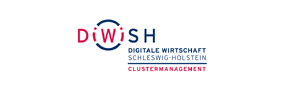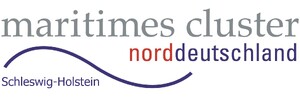Life Science North
Together for innovative medicine
Schleswig-Holstein is good for your health. Business-friendly structures that effectively promote the transfer of knowledge and technology, an intensive network of universities, research institutions and business and, last but not least, numerous institutions that support scientists on their way into the market - all of this makes the real North particularly attractive for companies in the life sciences. In conjunction with the Hamburg location, there are many opportunities for companies in the healthcare sector. Life Science Nord is the regional branch network for medical technology, biotechnology and pharmaceuticals and promotes the cooperation between business, science and politics in a targeted manner - to increase the innovative ability and for more international visibility of the life science location Northern Germany. The WTSH online editorial team spoke to Jan Philip Denkers, PR & Communications Manager at the Life Science North Cluster.

WTSH-Online editorial team: how has the Life Science Nord region developed in recent years?
Jan-Philip Denkers: Overall, the life sciences sector, which includes the fields of pharmaceuticals, biotechnology and medical technology, has developed amazingly in Hamburg and Schleswig-Holstein. Just a few years ago, there were the first-ever concrete figures that substantiated this in a study entitled ‘The Economic Footprint of the Life Science Nord Cluster’ (Der ökonomische Fußabdruck des Life Science Nord Clusters). A variety of indicators from 2018 made it clear that we have established ourselves economically as one of the leading life sciences networks in Europe. The region is home to more than 500 businesses in the sector, of which more than 270 are involved in Life Science Nord e.V. The gross value added by the cluster rose by €0.4 billion to €5 billion between 2016 and 2018. Adjusted for price changes, that equates to a real increase of 3.0% per year. Constant growth can also be seen in our workforce numbers here in the north. In 2018, there were 52,800 people employed in the life sciences sector, a rise of 2,400 on 2016.
WTSH-Online editorial team: you have given us an outline of the positive economic trend; are there any ‘outstanding’ developments that exemplify this trend?
Jan-Philip Denkers: If we take a look back, what stands out in particular are the businesses that have been able to supply exactly the things that we have needed, especially during these months of pandemic. Personal protective equipment, laboratory equipment, PCR and antigen testing systems for SARS-CoV-2 infection diagnostics and mRNA technology. These businesses include Eppendorf, for example, a company that manufactures consumables such as pipette tips for laboratory equipment at its site in Oldenburg in Holstein. There are also other fields in which the Life Science Nord cluster stands out. KI-SIGS is one of the 16 lighthouse projects being funded by Germany’s federal government and it is located in the north, too. The project consortium is led by UniTransferKlinik GmbH, based on the campus of TH Lübeck. In conjunction with research partners from Schleswig-Holstein, Hamburg and Bremen, the project plans to set up an AI ecosystem for healthcare systems. The development of BlueHealthTech will also be exciting to watch. An announcement was made in mid-September 2021 that this innovation network is going to receive up to €15 million in funding from Germany’s Federal Ministry of Education and Research over the coming six years. The unique network sees stakeholders from healthcare, business and academia working together to tap into the potential of marine research for applications in medicine and life sciences. These are just three examples of the countless success stories in life sciences up here in the north.
WTSH-Online editorial team: how do the activities of the Life Science Nord cluster benefit the industry’s companies and investors, especially foreign ones?
Jan-Philip Denkers: In recent years, Life Science Nord has worked continuously on becoming more international. This applies in an inbound as well as an outbound way, as the cluster sees it. We actively promote the visibility of the northern-German life science region globally with a range of different activities and projects. They include travel delegations that cultivate political and commercial contacts directly on the ground. Networking is a key element for connecting companies and investors with the right points of contact here in our region. Life Science Nord has been active in the Middle East and North Africa (MENA) region for roughly 15 years, among other things in collaboration with the Hamburg Representative Office of the German Emirati Joint Council for Industry and Commerce, led by Kirsten Staab. In this country, Life Science Nord organises the joint northern German stand at the Arab Health exhibition, featuring companies from the states of Schleswig-Holstein, Hamburg and Mecklenburg-West Pomerania.
WTSH-Online editorial team: how is it possible to network internationally, especially in times when the conditions are very difficult for meeting in person?
Jan-Philip Denkers: Using the projects MAGIA – Medtech Alliance for Global InternationAlisation – and, currently, MAGIA2Market, we are putting internationalisation at the very top of our agenda. The first of these projects, which focused on the US and China markets in particular, laid the foundations. It built a bridge to the target markets for SMEs with market studies, joint events and video training. The successor project, MAGIA2Market, started in 2020. As its name suggests, it has a specific aim of creating market access for companies from the project regions (in Germany: the LSN cluster) and providing help as they gain a footing on the ground in the target markets, which have since expanded to include Japan. Various tools were developed in order to accomplish this and these tools also proved to be excellent during the challenging times of the pandemic. They include digital matchmaking, the Go2Market programme – an all-round service to determine a company’s maturity for internationalising and then to implement targeted offers and support measures – and participating in pitch events. A hybrid pitch event took place in cooperation with 761 C Space from Beijing very recently in early September. It involved European companies joining in a videoconference to meet about 35 people on the ground physically. The participants’ feedback shows that formats like these work very well. In offering them, Life Science Nord creates visibility for individual players and automatically increases Hamburg’s and Schleswig-Holstein’s appeal as a location for life sciences. The intimate exchange through the project creates a stable foundation of trust and trust, like with all cluster activities, is the strongest currency there is. On top of that, we partner with WTSH, Hamburg Invest and regional offices based locally in the markets to ensure good visibility and accessibility.
WTSH-Online editorial team: how do companies receive support when they seek to establish themselves in northern Germany or become involved through cooperation in the northern German economic area?
Jan-Philip Denkers: The aspect of diversity in the cluster has a crucial role here. The Life Science Nord cluster thrives from and through its diversity. Unlike other institutional clusters in Germany, which concentrate exclusively on fields like biotechnology or medical technology for example, we cover the entire life sciences sector just as our name says. This includes biotechnology, pharmaceuticals and medical technology. The broad spectrum is mixed with stable and mature structures, local global champions, innovative start-ups and SMEs, generating an ideal climate for quickly integrating new companies. The consistent openness to cooperation, a portfolio of high-performance services and extensive knowledge of regulatory issues make it possible to give newcomers the best support possible. Cluster management plays a strong role in this. We connect, advise and enable access to information surrounding regulatory topics, funding, project initiation and much more.
The interview was conducted by Ute Leinigen















